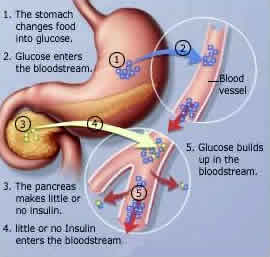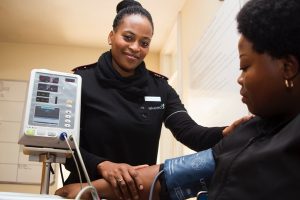So how do I tell if I have Diabetes?
Have you been having to go to the bathroom more frequently than normal? Can you not keep yourself hydrated? Did you know that these may be signs and symptoms of diabetes?
Symptoms of diabetes can vary from person to person but most of the time the signs and symptoms are going to be the quite similar. Type 2 diabetes usually tends to start as quite a silent disease – you can certainly not even be aware that you have it! Quite often, the early symptoms of diabetes like
- fatigue,
- poor vision
- reduced libido
- lethargy
- going to the bathroom more frequently,
tend to be just put down to “getting older” or some other reasons. Quite often a person that is diagnosed with diabetes has more than likely had the disease for five to ten years, but not know about it.
Most younger age people in their early 20’s and even younger, will notice themselves wanting drink more often and feeling like that they can’t get enough to drink, while others may feel like they are staying in the bathroom all the time with frequent urination.
What do I do If I notice These Early Symptoms of Diabetes?

Oral Glucose Tolerance Test
Often times when you have contacted your doctor about having signs and symptoms of diabetes, he or she will have you come in and get a fasting blood glucose test (Known as an OGTT) Oral glucose tolerance test. This involves an initial blood test and then you will be given a large amount of glucose to drink – followed by a second blood test a couple of hours later.
This will determine the rate that the glucose is cleared from your blood and you return to normal. A fasting blood glucose test is painless and very simple to have.
The Oral Glucose Tolerance Test is normally of a morning after you have been fasting over night. Drinking water beforehand is permitted, but no tea, coffee or juice.
Healthy Persons Results : The blood sugar level from the second test, should be below 7.8mM
Indication of Prediabetes : The blood sugar level from the second test would read between 7.8mM and 11.1mM
Diabetes : The Blood sugar level from the second test would be higher than 11.1mM
If you were to have 2 random blood sugar level results coming back at higher thatn 11.1mM, OR a fasting glucose test result higher than 7.8mM on 2 separate occasions, this would certainly confirm you have diabetes mellitus.

Is Depression a Symptom of Diabetes?
It’s not surprising that people who have been diagnosed with diabetes would also become depressed or anxious about what is happening to them and also about developing the complications that come with diabetes.
Diabetics really need to try and stay as motivated and positive as possible in order to be able to fight their disease. Depression is something that can and will interfere with your motivating forces, so if you are feeling anxious and depressed, see your heath care professional and have it addressed.
What other Symptoms of Diabetes should I watch for?
- Losing appetite
- Feeling anxious and often teary
- Lack of interest in your hobbies or regular activities
- Lack on interest in relationships
- Feeling pessimistic and sad on a regular basis
- You have difficulty sleeping, or you wake very early in the morning
- Having little energy and feeling constantly lethargic.
Read here for the recent advances in diabetes research!
